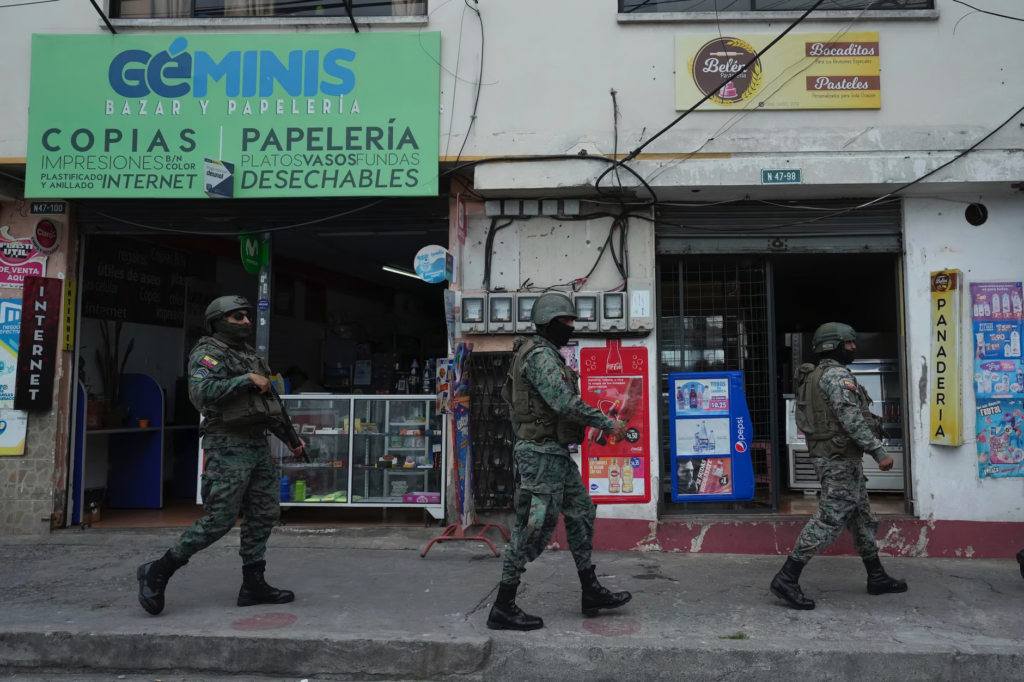On 8 January, a national state of emergency was declared in Ecuador for 60 days due to a security crisis and prison riots. The order was issued by the newly elected president Daniel Noboa after the escape of drug lord Jose Adolfo Macias Villamar from prison.
Fito – The most wanted prisoner in Ecuador
Better known by the alias Fito, Adolfo was sentenced to 34 years for several crimes in 2011. Following his escape, a string of prison riots was reported across the country. Around 200 officials and prison guards were taken hostage by inmates. Security forces later took back control of these prisons. These incidents led to the declaration of emergency; a nightly curfew was also imposed from 23:00-05:00 hours (local time).

National State of Emergency
During the emergency period, all foreign citizens entering Ecuador via land border crossings with Peru or Colombia will be required to present an apostilled certificate showing a lack of criminal record, issued by their country of origin, or if living abroad, country of residence for the last five years. Air travellers will not be subjected to these requirements at this time.
Peru, Colombia on Alert
On 9 January, a state of emergency was declared on Peru’s northern border with Ecuador. At least 500 soldiers were stationed at the border. On 10 January, additional security personnel were deployed on Colombia’s border with Ecuador, particularly in Ipiales, Chiles, Mataje, and Carlosama.
Violent Attacks Across Cities
On 9 January, at least four police officers were kidnapped by armed gangs and explosions were reported in several cities in Ecuador. At approximately 14:00 hours (local time), the headquarters of a state-owned television station was taken over by attackers. There were reports of attacks at the University of Guayaquil. The Chinese and the United States Embassies in Quito and the Consulate General of the US in Guayaquil were temporarily closed.

On 17 January, during afternoon hours (local time), César Byron Suárez, an Ecuadorian crime prosecutor, was assassinated in Guayaquil. The prosecutor was in charge of investigating the attack on 9 January at the television station. Two days later, the drug kingpin’s family was arrested and deported to Ecuador from Argentina’s Cordoba.
On 21 January, around 68 people who tried to seize a hospital were arrested in Guayas. Close to 2763 arrests have been made in the ongoing “internal armed conflict” so far.
State of War
Ecuador is now in a state of war against criminal groups. Over the past few weeks, the country has been facing yet another wave of violence and crime. In response to the government’s security measures, the drug cartels continue to retaliate, thereby threatening the civilians. At least 19 people have been killed so far.
The severity of the situation in Ecuador can be explained by the number of murders recorded last year. In a population of around 17 million, at least 7,800 murders were reported. The country is beginning to lose its grip on crime. This week, officials from the US will be in Ecuador to strengthen bilateral cooperation on security. In an attempt to raise money to combat organised crime, the president of Ecuador said on Monday that he is looking for financial assistance from the United States and Europe. Barely two months into power, Noboa is facing the biggest challenge of curbing violence in the country. Whether his approach will be able to achieve success remains to be seen.
Stay informed and safe with Sitata Travel Protection offering Travel Insurance empowered by Real-Time Travel Disruption Notification, Telemedicine and Flight Tracking.



